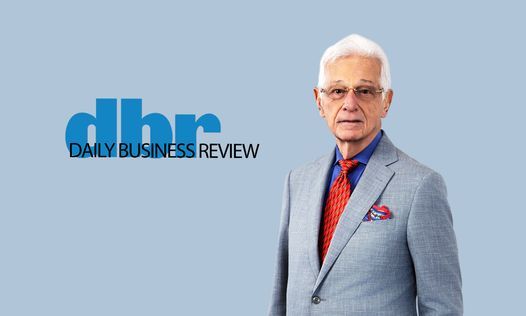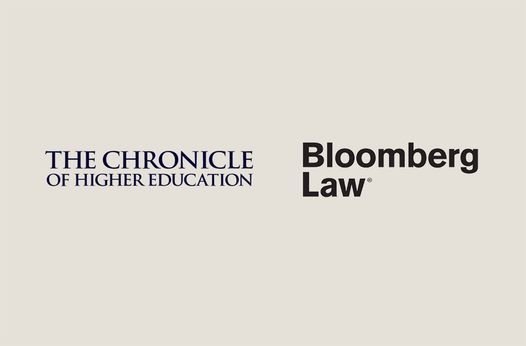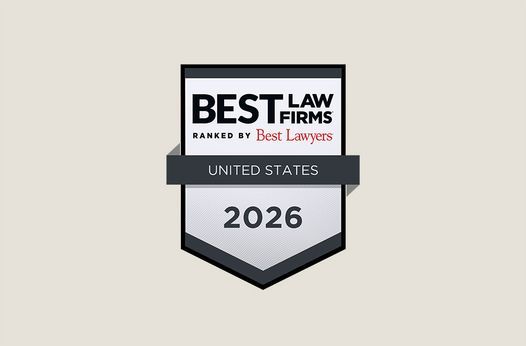Consumer & Class Action Litigation Newsletter - October 2015 Edition
Hinshaw Newsletter | 10+ min read
Oct 29, 2015
- Third Circuit Defines an Autodialer under the 2015 FCC Ruling
- Rule 68 Offer of Judgment Does Not Moot Class Representative's Claim
- First Circuit Holds that Debtor's TILA and 93A Claims Were Time Barred
- Sixth Circuit Holds that Business Entity is a "Person" under the FDCPA
- Debt Collector's Use of Local Area Codes Not Deceptive or Misleading
Third Circuit Defines an Autodialer under the 2015 FCC Ruling
Dominguez v. Yahoo, Inc., No. 14-1751, 2015 WL 6405811 (3d Cir. Oct. 23, 2015)
In Dominguez v. Yahoo, Inc., the Third Circuit applied the FCC's most recent rulings on what constitutes an autodialer to Yahoo's system for sending email users text messages when they receive new emails. The district court had found that autodialer status requires the capacity to store or produce numbers that are sequentially or randomly generated and to dial them. The district court entered summary judgment for Yahoo, holding that Yahoo's system for sending SMS updates to email users was not an autodialer because Yahoo's expert proffered an affidavit stating that the SMS system lacked the capacity to store or produce numbers that were randomly or sequentially generated.
On appeal, the Third Circuit read the FCC's rulings as providing: (a) an autodialer must be able to store or produce numbers that themselves are randomly or sequentially generated, even if the system is not used for that purpose (thus rejecting the plaintiff's contention that the system need only be able to dial numbers in a queue or list in a sequential manner); and (b) neither present ability to store or produce numbers in this manner nor a single piece of equipment is required; instead, the latent capacity to place autodialed calls is sufficient.
Applying this standard to Yahoo's SMS system, the Third Circuit found that a reasonable jury could find that Yahoo's system was an autodialer. The court essentially held that the expert testimony proffered by Yahoo was inadmissible. Simply regurgitating the TCPA's language, Yahoo's expert had opined that "[t]he servers and systems affiliated with the Email SMS Service did not have the capacity to store or produce numbers to be called, using a random or sequential number generator, and to call those numbers." The court faulted the expert for offering a legal conclusion and for failing to define what he meant by capacity. As a result, the court remanded the case to the district court for a redetermination of whether Yahoo's system was an autodialer under the FCC rulings, including the agency's most recent ruling, which holds that a system's potential capacity for autodialing numbers is sufficient for autodialer status.
Although this decision resurrected the class action against Yahoo, the Third Circuit's holding is not entirely unfavorable to companies that use call centers to call their customers. Specifically, the court stated that a system qualifies as an autodialer only if it has the latent or present capacity to produce or store numbers to be called using a random or sequential number generator. Under this holding, a defendant could argue that call center technology does not become an autodialer simply because it can dial numbers from a list. It should be noted, however, that the SMS system in Dominguez was not a predictive dialer. Whether a dialing system that can predictively dial numbers from a list is an autodialer would be controlled by the FCC's 2003 TCPA Ruling, 18 FCC Rcd. 14014, 2003 WL 21517853. In the 2003 ruling, the FCC determined that a dialing system that calls numbers from a database at a rate to ensure that a human agent is available to take calls that are answered falls within "the meaning and statutory definition of 'automatic telephone dialing equipment'" under the TCPA. 18 FCC Rcd. 14014 at para. 133.
Rule 68 Offer of Judgment Does Not Moot Class Representative's Claim
Bais Yaakov of Spring Valley v. ACT, Inc., 798 F. 3d 46 (1st Cir. 2015)
Plaintiff brought a Telephone Consumer Protection Act (TCPA) class action claim against the defendant. Several months into the litigation, the parties mutually agreed on a deadline for class certification motions. Prior to that deadline, defendant tendered an offer of judgment under Rule 68. Defendant offered to pay $1,600 for each fax ($1,500 for its violation of the TCPA and $100 for violation of 396-aa – New York's unsolicited telefacsimile statute), which defendant argued represented the maximum plaintiff could be awarded under each statute. Plaintiff did not accept the offer of judgment and subsequently moved for class certification. Defendant then moved to dismiss the complaint for lack of subject matter jurisdiction, arguing that its unaccepted and withdrawn Rule 68 offer fully resolved any case or controversy between the parties thereby rendering plaintiff's claims moot.
The district court denied defendant's motion to dismiss, holding that an unaccepted offer of judgment did not moot plaintiff's claim. The First Circuit affirmed the lower court's decision. The Court noted that a representative's interest in having a class certified is insufficient alone to defeat a mootness argument. Instead, the Court must look to whether a representative's claim is "fully resolved" by the tendering of the Rule 68 offer. In order to address this, the Court looked to whether the offer would allow the plaintiff to "receive complete relief" such that there remains no individual case or controversy. The Court held that an unaccepted offer does not trigger mootness. Specifically, the Court held that an unaccepted Rule 68 offer is a "red herring: it does not, in itself, provide any relief…To the contrary, Rule 68 expressly specifies what happens to a rejected offer: it is deemed to be 'withdrawn,' and it is 'not admissible except in a proceeding to determine costs.'" Since the offer did not provide complete relief, the plaintiff's litigation was not mooted, and the lower court did not lack subject matter jurisdiction.
First Circuit Holds that Debtor's TILA and 93A Claims Were Time Barred
In re Laura Sheedy v. Deutsche Bank National Trust Company, et al, 2015 WL 5104517 (1st Cir. Sept. 1, 2015)
In In re Laura Sheedy, the First Circuit concluded that a debtor's Truth in Lending Act (TILA) and Massachusetts Unfair and Deceptive Trade Practices Act (Chapter 93A) claims were time-barred and that the debtor could not pursue a claim for rescission in recoupment under the laws of the Commonwealth of Massachusetts.
In 2009, the debtor defaulted on her mortgage loan, at which time the mortgagee commenced foreclosure proceedings. The debtor filed a Chapter 13 Bankruptcy Petition and as part of her Chapter 13 Plan, the debtor asserted a series of lender liability claims through which she sought to rescind the mortgage under TILA and through which she claimed unfair and deceptive trade practices against the mortgagee and mortgage loan servicer. In 2010, the debtor filed an adversary proceeding based upon the same claims. The Massachusetts Bankruptcy Court granted summary judgment in favor of the mortgagee and mortgage loan servicer finding that the debtor's TILA and 93A claims were time barred and that the mortgagee had standing to foreclose on the property, as it was the holder of the note and mortgage.
On appeal, the First Circuit agreed with the Massachusetts Bankruptcy Court, holding that the debtor's TILA and 93A claims were time barred, as the transaction closed in 2004 and her claims were not asserted until 2010, well after the statutes of limitation of 3 and 4 years, respectively.
In addition, this decision is of particular importance because the First Circuit expressly holds that a borrower cannot allege a claim for rescission in recoupment under Chapter 93A. Despite the borrower's allegation that a request for rescission in recoupment is immune from a limitations period because the equitable remedy of recoupment can be raised at any time, the First Circuit disagreed. The First Circuit noted that under Massachusetts common law, recoupment and rescission are separate, non-overlapping remedies, only one of which may be pursued by any litigant. As such, the First Circuit made clear that a borrower is unable to revive a time barred claim for rescission of their mortgage loan transaction under Chapter 93A through the equitable defense of recoupment.
Sixth Circuit Holds that Business Entity is a "Person" under the FDCPA
Anarion Investments LLC v. Carrington Mortgage Servs., LLC, 794 F.3d 568 (6th Cir. 2015)
In Anarion Investments LLC v. Carrington Mortgage Servs., the Sixth Circuit decided whether an artificial entity such as a limited liability company (LLC) could maintain suit for alleged violations of the Fair Debt Collection Practices Act (FDCPA), an issue that no federal circuit had previously addressed. Although Congress enacted the FDCPA in 1977 because existing laws were deemed "inadequate to protect consumers," 15 U.S.C. Section 1692(b) (emphasis added), the Sixth Circuit found that the text of the statute authorizes suits by business entities that are not consumers.
Anarion's claim arose from a $960,000 loan that Kirk Leipzig took out from Bank of America to purchase a residence in Tennessee. As security, Leipzig gave the bank a deed of trust on the residence. He later caused the property to be leased to an attorney named Scott D. Johannessen and gave Johannessen an option to purchase the property. In 2011, Johannessen allegedly exercised this option but otherwise did not take steps to obtain title to the property. Around that time, Leipzig stopped making loan payments. Sometime later, in 2013, Johannessen assigned his lease and option rights to his investment company, Anarion, by which time the home was in foreclosure.
During the foreclosure proceedings, one defendant, Carrington Mortgage Services, published notices in the local newspaper stating that a co-defendant, Brock & Scott, was the substitute trustee for the loan under an "instrument duly recorded." Anarion filed suit, alleging that the notices violated the FDCPA's prohibition against misleading collection practices because there was no such instrument. The district court dismissed the action because Anarion was an investment company, not a consumer.
In its analysis of the district court's ruling, the Sixth Circuit began by noting that the FDCPA's enforcement provision states that "any debt collector who fails to comply with any provision of this subchapter with respect to any person is liable to such person[.]" 15 U.S.C. § 1692k(a) (emphasis added). The court stated that the outcome of the appeal depended on whether Anarion was a "person" for purposes of this section.
The court then noted that the federal Dictionary Act, 1 U.S.C. Section 1, generally provides that when a court determines "the meaning of any Act of Congress," the word "person" includes "artificial entities," such as limited liability companies, unless "the context indicates otherwise." The court found that the context of the FDCPA clearly indicated that the statute's use of "person" included artificial entities such as Anarion. Most importantly, the court noted that several times the FDCPA used the term "person" to refer exclusively to artificial persons. 794 F.3d at 569. For example, Section 1692a(6)(B) applies to "any person" who acts "as a debt collector for another person" where both the collector and the other person "are related by common ownership or affiliated by corporate control," and this relationship cannot exist among natural persons. Similarly, Section 1692c(b) bars debt collectors from communicating with "any person other than," among others, "a consumer reporting agency," which by definition is not a natural person.
The court also noted that when Congress intended to limit a provision of the FDCPA to natural persons, it did so expressly, as in Section 1692(a)(3), which defines "consumer" as meaning "any natural person obligated or allegedly obligated to pay any debt." 794 F.3d at 570. Thus, although Anarion was an artificial person, it was authorized to sue to for damages under the FDCPA by virtue of the Dictionary Act and the FDCPA's use of the word "person" to indicate artificial legal entities.
The defendants and a dissenting circuit judge argued that because the purpose of the FDCPA is to protect consumers, the statute should not be read as permitting suits by artificial persons. In response, the majority noted that "debt" is defined in Section 1692a(5) as an obligation incurred for personal or household purposes, and that this definition would prevent "any person—natural or artificial—from filing a lawsuit over an attempt to collect" a business debt. 794 F.3d at 570. Second, the majority stated that its holding was limited to a finding that Anarion was a person for purposes of the FDCPA. The decision did not address whether the foreclosure notices at issue were actually misleading, or whether those representations were "with respect to" Anarion, as required for Anarion to obtain damages under 1692k.
Under this holding, if an artificial business entity is subjected to efforts to collect a consumer debt, the business entity may be permitted to sue for damages under 1692k if it can allege that the collection practices were "with respect to" the entity and that the collection practices violated the statute. We would expect such a situation to occur rarely since only in unusual circumstances are business entities subjected to efforts to collect consumer debts.
Debt Collector's Use of Local Area Codes Not Deceptive or Misleading
Bien v. Stellar Recovery, Inc., Case No.: 14-366 S (D. R.I. 2015)
In Bien v. Stellar Recovery, Inc., et al., the United States District Court for the District of Rhode Island granted Defendant Stellar Recovery, Inc.'s (Stellar) motion for summary judgment finding that Stellar's use of telephone numbers with Rhode Island area codes was neither deceptive nor misleading particularly where Stellar's name accurately appeared on the caller-ID.
The plaintiff's complaint alleged that Stellar violated the Fair Debt Collection Practices Act (FDCPA) through its use of telephone numbers bearing Rhode Island area codes although Stellar did not have any employees or offices in Rhode Island. According to the plaintiff, Stellar's use of Rhode Island telephone numbers constituted a false, misleading, or deceptive representation or means in violation of the FDCPA. The plaintiff further claimed that Stellar's use of those telephone numbers was intended to trick the plaintiff into picking up the telephone. Notably, Stellar contracted with a third-party to provide dialing services and the telephone calls to the plaintiff originated outside Rhode Island. However, the telephone numbers (bearing the Rhode Island area codes) were owned by Stellar; Stellar's name also appeared on the caller-ID. Additionally, if plaintiff called the numbers back, she would have reached Stellar. The Rhode Island District Court determined that Stellar's use of the telephone numbers was "in no way deceptive or misleading."
In reaching its decision, the District Court reaffirmed that courts in the First Circuit employ an objective test to determine whether communication would have disabled an "unsophisticated consumer" from knowing how to handle the debt collection call rejecting plaintiff's attempt to apply a "least sophisticated consumer" standard. The District Court determined that the plaintiff failed to explain how a "reasonable juror could conclude that the use of the phone numbers was false, deceptive, or misleading." The undisputed facts clearly demonstrated that Stellar took no steps to conceal its identity through the use of the telephone numbers. Indeed, Stellar left the plaintiff two voicemails which identified Stellar by name and plaintiff's review of her caller-Id log displayed Stellar's name as the caller associated with the unanswered calls. As the District Court noted, Stellar did not cause a fictitious name or a name familiar to plaintiff to appear on the caller-Id in an attempt to trick plaintiff into answering the telephone. As such, Stellar did not employ any false representation or means. Additionally, Stellar's mere use of Rhode Island telephone numbers would not render an unsophisticated consumer unable to make an informed decision as to whether to answer the call given that Stellar's identity was fully disclosed on the caller-ID.
Related People
Related Capabilities
Featured Insights

Employment Law Observer
Dec 8, 2025
12 Days of California Labor and Employment: 2025 Year in Review

Press Release
Dec 4, 2025
Hinshaw Recognized by the Leadership Council for Legal Diversity as a 2025 Top Performer

Press Release
Nov 25, 2025
Hinshaw Legal Team Secures Summary Judgment in Gas Station Injury Case

Press Release
Nov 18, 2025
Hinshaw Releases the Third Edition of Duty to Defend: A Fifty-State Survey

In The News
Nov 13, 2025
A Profile on Neil Rollnick: After 57 Years in Practice, He Has No Plans to Retire

Press Release
Oct 22, 2025
Hinshaw & Culbertson LLP Launches New Website and Refreshed Brand







